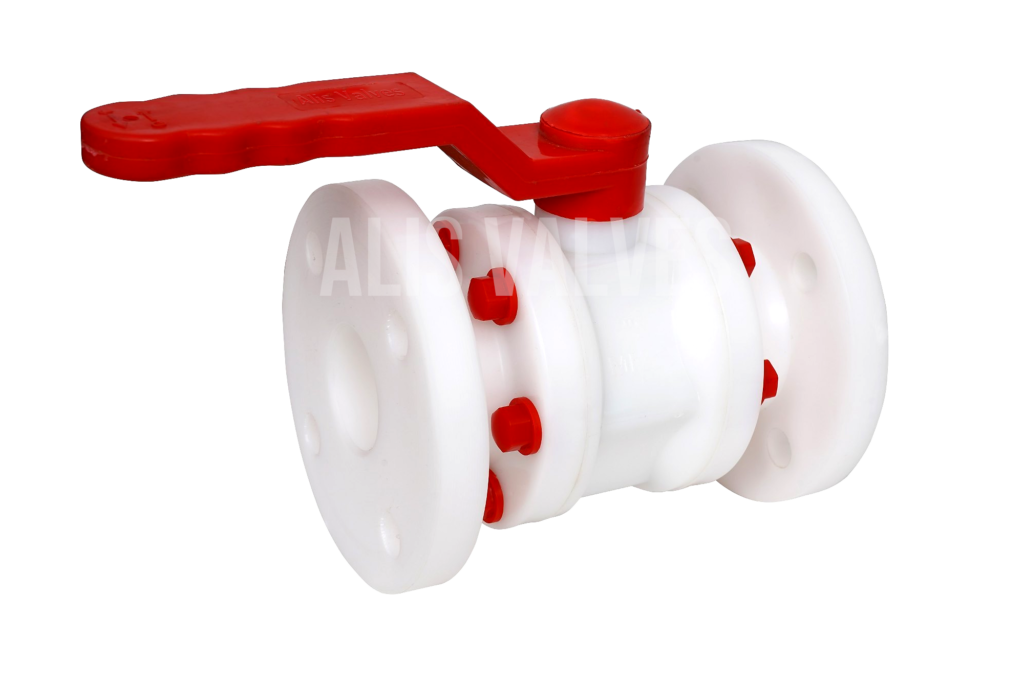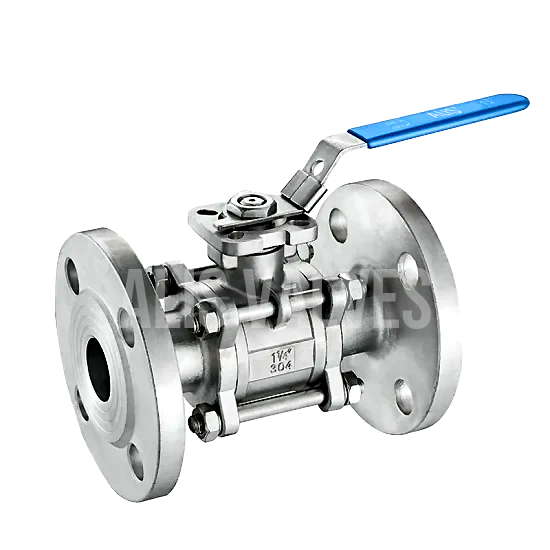Industrial valves are often overlooked but are essential components that ensure the smooth operation of industrial processes. These devices serve as critical gateways for the control, regulation, and isolation of fluids and gases in complex manufacturing systems. While they may seem like passive components, industrial valves wield significant power in terms of increasing safety, control, and operational efficiency. As industries like oil and gas, pharmaceuticals, energy, and manufacturing adopt more advanced technology and automation, the importance of valves has never been more apparent.
This article dives into the hidden power of industrial valves, revealing how they boost safety, enhance process control, and contribute to operational efficiency.
The Critical Role of Industrial Valves
At their most basic level, industrial valves regulate the flow of substances such as liquids, gases, slurries, or steam. They control the pressure, flow rate, and direction within a system, and, when necessary, they can completely stop or isolate the flow. Depending on their design, these valves can handle high pressures, corrosive materials, and extreme temperatures, making them indispensable in heavy-duty industries like petrochemicals, energy production, and wastewater management.
As industries evolve and place greater emphasis on automation, efficiency, and sustainability, industrial valves are now integrated with smart technologies, further enhancing their capabilities. The right choice of valve—whether for a pipeline, chemical reactor, or water treatment facility—can have a significant impact on performance, longevity, and safety.

Enhancing Safety Through Valve Technologies
Safety is paramount in any industrial environment, especially where high-pressure systems, volatile chemicals, or hazardous conditions are present. Industrial valves are the first line of defense in preventing system failures, leaks, or over-pressurization that could lead to accidents. By integrating advanced materials, automation, and real-time monitoring capabilities, industrial valves offer several safety advantages:
- Pressure Regulation and Relief
Over-pressurization is one of the most common causes of equipment failure and safety incidents in industrial systems. Pressure relief valves are designed to automatically open when a system’s pressure exceeds a pre-set limit, releasing excess pressure to avoid a catastrophic failure. In industries like oil and gas, this functionality is crucial to preventing explosions, fires, or hazardous leaks. Relief valves not only protect the integrity of the system but also safeguard workers and the environment from potential harm. - Emergency Shutoff
Industrial valves equipped with automated shutoff mechanisms play a vital role in ensuring safety. In the event of a system malfunction, such as a leak or over-pressure condition, automated shutoff valves can instantly stop the flow of dangerous materials. This is particularly important in industries that deal with toxic or flammable substances, where even a minor leak could lead to severe safety risks. Emergency shutoff valves provide a fast and effective response, minimizing the potential damage and protecting both personnel and equipment. - Leak Detection and Prevention
Modern industrial valves can now integrate leak detection systems using smart sensors and IoT technology. These valves can identify leaks early on and send real-time alerts to operators, who can take immediate action to prevent a more significant incident. For instance, in chemical processing plants, smart valves can detect abnormal flow rates or pressure drops that might indicate a leak, allowing operators to shut down the affected section before it poses a danger. Early leak detection not only enhances safety but also helps reduce environmental damage and avoid costly cleanup efforts. - Fire-Safe Valves
In industries that handle flammable liquids or gases, fire-safe valves are essential for preventing fire propagation. Fire-safe valves are designed to remain operational even under extreme temperatures caused by fires, providing time to shut off the flow of hazardous substances and prevent the spread of fire. These valves are crucial in protecting critical infrastructure and ensuring that safety protocols can be followed in emergency situations.
By prioritizing safety through robust valve technology, industrial operations can significantly reduce the risks associated with high-pressure, hazardous environments.
Precision Control for Optimal Performance
Industrial valves play a critical role in regulating the precise flow of fluids and gases, which directly impacts the quality and efficiency of industrial processes. In industries like pharmaceuticals, food processing, and chemical manufacturing, even small fluctuations in flow rates or pressure can result in product defects or inefficiencies.
- Flow Control Precision
Valves such as globe, needle, and control valves are designed for applications where precise control over flow rates is required. These valves allow operators to fine-tune the flow of materials to meet exacting standards. In industries like pharmaceuticals, where consistency in ingredient ratios is crucial for product efficacy, precise control valves are invaluable. - Automated Control Systems
With the advent of automation, modern industrial valves can be integrated into automated control systems. This allows valves to be adjusted in real-time based on operational data, ensuring that flow rates, pressure, and temperatures are constantly optimized. In an automated chemical plant, for instance, a smart valve system can automatically adjust the flow of cooling liquids based on real-time temperature readings, ensuring optimal reaction conditions without the need for manual intervention. - Remote Monitoring and Adjustment
Smart valves equipped with sensors and IoT connectivity provide operators with the ability to remotely monitor and control valve performance. This is particularly useful in industries that operate in hazardous or hard-to-reach environments. For example, in offshore oil drilling platforms, smart valves allow operators to remotely adjust flow rates and pressures, ensuring smooth operations without putting personnel at risk. - Enhanced Product Quality
In industries that require consistent product quality, such as food and beverage or pharmaceuticals, industrial valves play a crucial role. By ensuring that flow rates, pressures, and temperatures remain within precise parameters, valves help maintain the consistency and quality of the final product. Inconsistent flow or pressure variations can result in product defects or safety concerns, but with advanced valve technologies, these risks are significantly reduced.
Increasing Efficiency with Advanced Valve Solutions
Efficiency is a key driver for success in modern industrial environments. Industrial valves contribute to operational efficiency by minimizing energy consumption, reducing downtime, and ensuring the smooth operation of critical systems.
- Energy Efficiency
Industrial valves, particularly those used in fluid handling systems, can significantly impact energy consumption. Valves that reduce friction and pressure loss help optimize the flow of materials, minimizing the energy required to move fluids or gases through the system. This is especially important in industries like power generation, where optimizing energy efficiency can have a substantial impact on operating costs. - Reducing Downtime with Predictive Maintenance
Downtime can be one of the most expensive consequences of industrial operations. However, modern industrial valves equipped with predictive maintenance capabilities can help mitigate this risk. By continuously monitoring valve performance and wear, predictive maintenance systems can alert operators when a valve is nearing the end of its lifecycle or requires servicing. This allows maintenance to be scheduled during planned shutdowns, reducing the risk of unexpected failures and minimizing costly downtime. - Optimized Resource Usage
By providing precise control over fluid and gas flows, industrial valves help manufacturers use raw materials more efficiently. In industries such as water treatment or chemical processing, precise valve control ensures that only the necessary amount of material is used, reducing waste and improving the overall efficiency of the operation. This not only cuts costs but also contributes to more sustainable industrial practices. - Longevity and Durability
Industrial valves made from advanced materials, such as corrosion-resistant alloys or ceramics, offer increased durability and longer lifespans. This is particularly important in industries that handle corrosive or abrasive materials. Longer-lasting valves reduce the frequency of replacements, lowering maintenance costs and improving overall operational efficiency.
Conclusion
Industrial valves may seem like simple components, but their hidden power lies in their ability to significantly increase safety, control, and efficiency in complex industrial systems. From enhancing safety through automated shutdowns and pressure relief to optimizing operational efficiency with predictive maintenance and precise control, industrial valves are critical to the success of modern manufacturing processes.
As industries continue to adopt more advanced technology and embrace automation, the importance of smart, durable, and efficient valves will only grow. By investing in high-performance valve systems, industries can unlock greater levels of safety, control, and efficiency, ensuring smoother operations and reduced costs in the long run.

